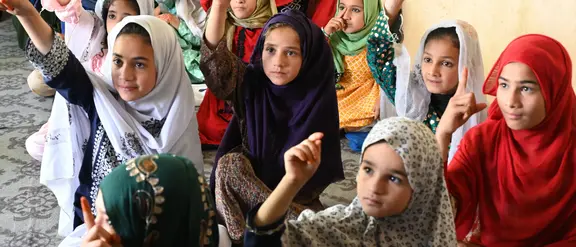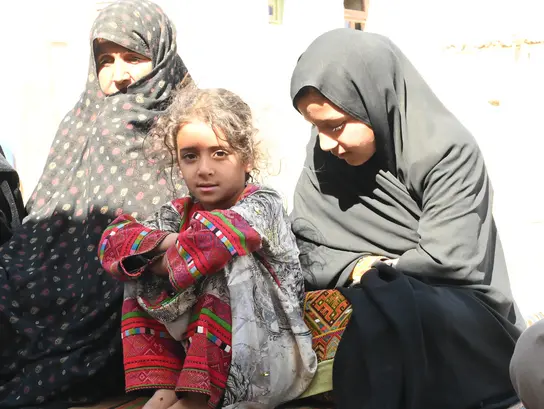Education centers and contact points for children on the run
Thousands of children in Nimruz have experienced displacement and deportation. Many more are growing up in poverty. The Terre des Hommes partner organization "OHA" is helping them find new support.
In August 2021, the Taliban took over power in Afghanistan. Since then, more and more people have been trying to leave the country. Most flee to the direct neighboring countries: 3.4 million refugee Afghan live in Iran today, 1.9 million in Pakistan. However, restrictions and deportations increase in the reception center.
Nimruz, a province in southern Afghanistan, borders on both Iran and Pakistan. Over the decades, the region was particularly affected by unrest, armed conflicts, droughts, poverty and hunger. Now she has become a hub for refugees - and for involuntary returnees.
"I went to Iran to work because there are many problems at home and I am the only one who can take care of my family," reports a boy from our partner organization. "I went to Iran to work, but we were beaten and forced back," says another.
8,000 deportations of children only via the abrihom bridge
Both boys were deported from Iran back to Afghanistan last year. Like many others, they end up in Nimruz. According to the "Directorate for returnees and returns" there, over 1,750 families-a total of more than 8,000 children-were brought here from Iran only via the so-called abrishom bridge in 2024.
Although they come from various Afghan provinces, many remain on site. Often they or their families hope to be accommodated and find work beyond the border. But their location is precarious, there is a lack of jobs and employment opportunities. Basic services are overcrowded, only a few children can go to school. Instead, they often try to make some money or food somehow. All of this leads to considerable difficulties for children and families, trauma and fear.
In response to this situation, the Organization for Humanitarian Assistance (OHA), together with Terre des Hommes Germany, has set up educational centers and child-friendly contact points to assist both migrant and vulnerable children living in Nimruz.
The children can go to school instead of working
The families of these children are supported in learning professions in order to be able to cover their basic needs. The focus is also on social integration and integration of children in schools and communities: the highest priority is often to end exploitative work and dependency relationships so that the children can go to school instead of working.
Especially those children who were deported from Iran and Pakistan also need new hold, perspectives and often also protection against human dealers and other criminals. Many of these children are traumatized and severely disturbed: stability and a regulated everyday life are important prerequisites for feeling support and confidence again - to rebuild their lives and to be able to stand on their own feet at some point.
Help with a donation
